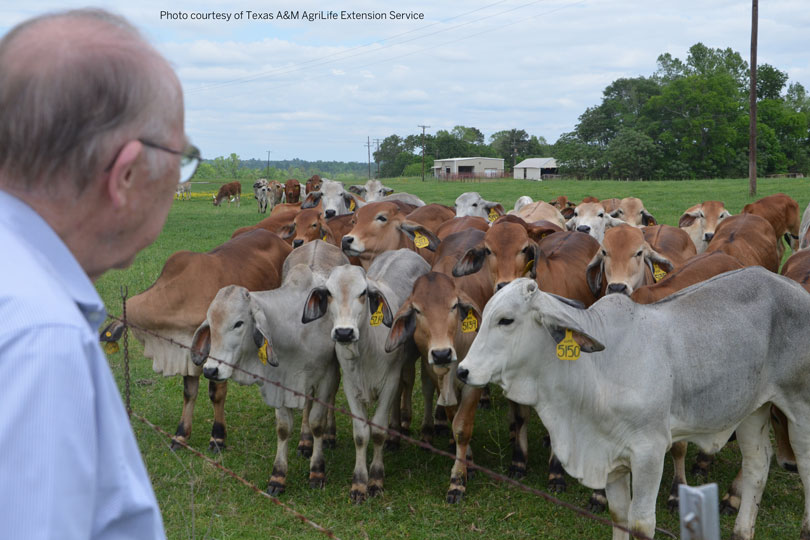By Justin Walker
Communications Specialist
A Texas A&M AgriLife Research team received a grant that will fund research to identify the impacts of prenatal stress of beef cattle.
Dr. Ron Randel, AgriLife Research physiologist, and his team will study the effects of prenatal stress on DNA, white blood cells, other tissue and resulting changes in genetics connected to temperament. Drs. Penny Riggs, David Riley and Thomas Welch of the Animal Science Department at Texas A&M University make up the rest of the team.
Randel said the research is part of previous studies of Brahman cattle herds that linked stress experienced in bred cows to aggressive offspring. It is much more difficult to manage animals with temperamental behaviors, Randal said, so finding genetic markers that indicate docility is the goal.
“Stress causes changes in unborn fetuses, and those changes are expressed after the animal is born,” he said. “This is a big deal, because it shows there are behavioral changes that affect the way DNA causes RNA to function.”
After studying stored white blood cells from 28-day-old calves, Randel found major differences in methylation patterns of the animals’ DNA in a significant number of genes impacting animal production and health.
“At this point, we don’t know how many markers are affected, but we know that markers tied to stress responsiveness, or temperament, are affected by environmental conditions,” Randall said. “That says the way animals perform under certain stress will not be as predictable by DNA analysis in using those markers. It brings into question the value of using DNA markers without the knowledge of environmental factors that can affect the mother and therefore the offspring.”
This isn’t the first study to look into stress responsiveness and offspring. Randel said researchers have already studied rodent offspring, and others are interested in humans.
“This research is a big deal,” he said. “It will have immediate impacts on cattle production and the way producers breed and handle their animals, but there are also implications that could be tied to other mammals, including humans, when it comes to prenatal stress and its effect on behavior.”
For more information on the study, click here.

